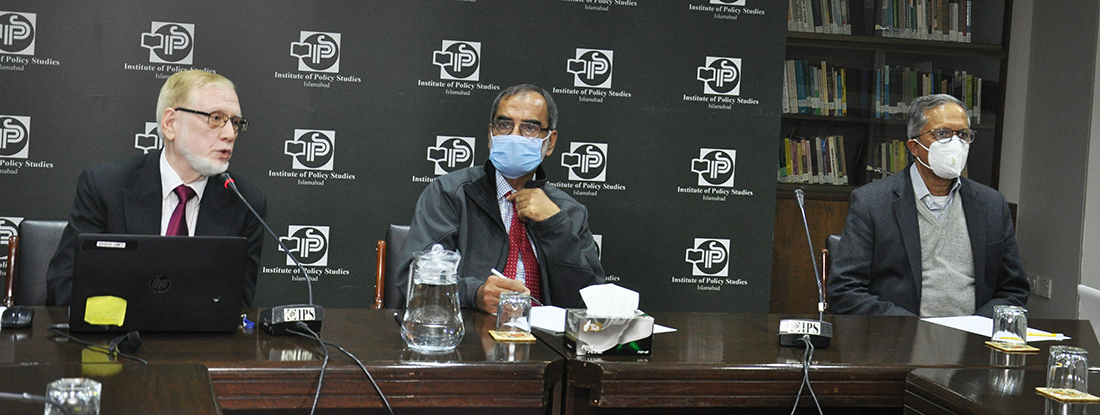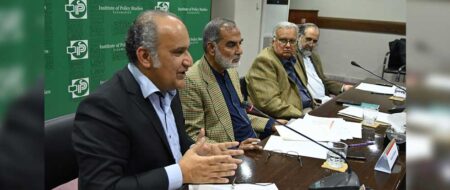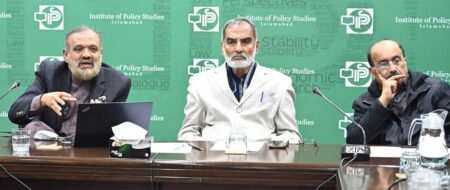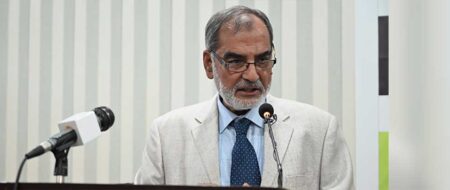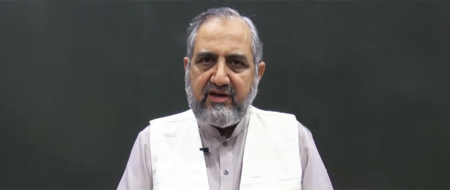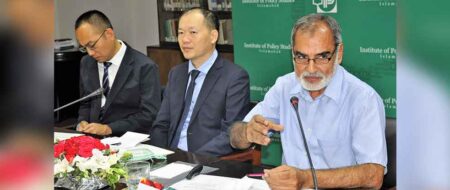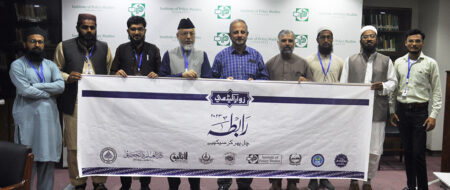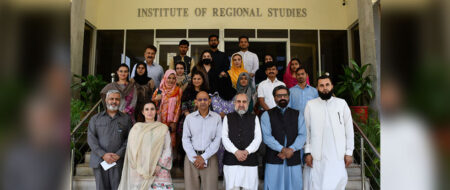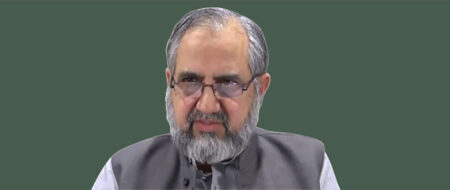‘Challenges for President-elect Joe Biden: Expectations and Implication for the World and South Asia’
Deliberating on the challenges that lay ahead for the newly elected US president Joe Biden, speakers at a session held at IPS were concordant that it may be difficult for the new president-elect to change or reverse some of the divergent measures taken by the Trump administration during his tenure. They however also agreed that one should still not expect many changes in the direction of the US policies towards Pakistan, as any major shift in the country’s strategic interests following the change in its leadership still appears highly unlikely.
The thoughts were shared in a session titled ‘Challenges for President-elect Joe Biden: Expectations and Implication for the World and South Asia’ which was held on December 1, 2020. The session was chaired by Executive President IPS Khalid Rahman, whereas the panelists included Ambassador (r) Tajammul Altaf, senior research fellow at IPS, Brigadier (r) Tughral Yamin, non-resident fellow at IPS and associate dean, Centre for International Peace and Stability Studies-National University of Science and Technology (CIPS-NUST), and Sr Analyst Air Commodore (r) Khalid Iqbal.
Altaf, in his keynote speech, said that recent US elections were the most controversial ones in the country’s history where the margin of victory in terms of casted electoral votes was extremely narrow. Trump has accepted the defeat but is yet to reconcile, and in his last days, may even try to make it harder for the new president elect to reverse some of the decisions he has made in his tenure.
For Biden on the other hand, Altaf viewed, it would be an uphill task to overturn some of the steps taken by Trump, and he may not even be able do away with all of them. His immediate task would be to tackle the rising threats of Coronavirus in the country, the growing damages of which, according to many, were largely inflicted by Trump’s unresponsive policies. The repairing and reshaping of the US’ foreign policy will be another difficult task for Joe Biden. His approach towards China – whom he may not see as a security threat but as a key economic threat, his ties with India – whom he may want to use as a strategic balancing act against China, his relations with Iran – towards which he has publicly announced to adopt a reconciliatory approach, his intent towards Afghanistan – where he may want to renegotiate with Taliban and extend time for the withdrawal of troops, and the new arms deal in the Middle East are some of the areas where he may like to rethink the strategy and reimagine his foreign policy. On the other hand, the US alliance with Israel – which holds a pivotal place in the country’s foreign policy, and his relations with Pakistan – which he may continue to see through the prism of China, India, Afghanistan and South Asia, are some other important areas which are likely to remain the same.
As far as Pakistan was concerned, he added, it may be easier for the country to interact with Biden and enter into an era of relatively stable relationship unlike the early days of Trump where there were many ups and downs. Climate change and nuclear non-proliferation could be some of the areas for convergence and cooperation between the two countries, whereas Pakistan may also find more chances to play a greater role in instilling peace in Afghanistan. The country should however not expect much from the new US administration over Kashmir apart from a few cosmetic statements here and there.
Iqbal opined on similar lines stating that while the initial 3-4 months of Joe Biden tenure will set the tone of his policies, the changes that were made by the Trump administration were multidimensional and so many which may complicate a few matters for his successor. The exponential rise of China will continue to be a significant hurdle for the country, but it will also have to realize that the ally it seeks in South Asia in the shape of India will prove to be a no-match against China’s growing might.
On US-Pakistan relations, Iqbal said that there may not be a sea-change in the US policy towards Pakistan. However, their relations may not see the lows that they witnessed during the early years of the Trump Administration. PE Joe Biden is expected to follow traditional policy with a balanced approach, and Pakistan will need to chart out its strategy to pursue its relations with the US on the convergences like political stability in Afghanistan, Islamabad’s assistance in peace talks in Afghanistan, peace and stability in South Asia, and Pakistan-US defence cooperation.
Yamin was of the opinion that Trump had been a good ‘bad-cop’ for the US as he has taken some difficult decisions for the country’s foreign policy. He however did not see any significant changes happening in the global chessboard following his departure.
In case of Pakistan, Yamin said that Washington will need Islamabad’s help in resolving the crisis in Afghanistan, and this will be an opportunity for Pakistan to identify any convergence points with the US. It will be a challenge for the country to engage with the new US administration effectively, and it can be done by reaching out to the new people who are set to come into authority and by trying to bring them to voice analogous opinions over important issues.
Rahman pointed out at the successes of the US governance system that despite big changes in the country’s leadership and administration, there may not be big changes in the constant policies apart from a few possible self-correction courses. He said that Biden has been in politics for almost 40 years and has been a part of the system for a very long time so he is unlikely to ring many changes in the country’s strategic policies. Pakistan, on the other hand, needs to find opportunities even in these cosmetic changes, trying to find favorable spaces and then try to build upon them while keeping in view its long term strategic goals.


